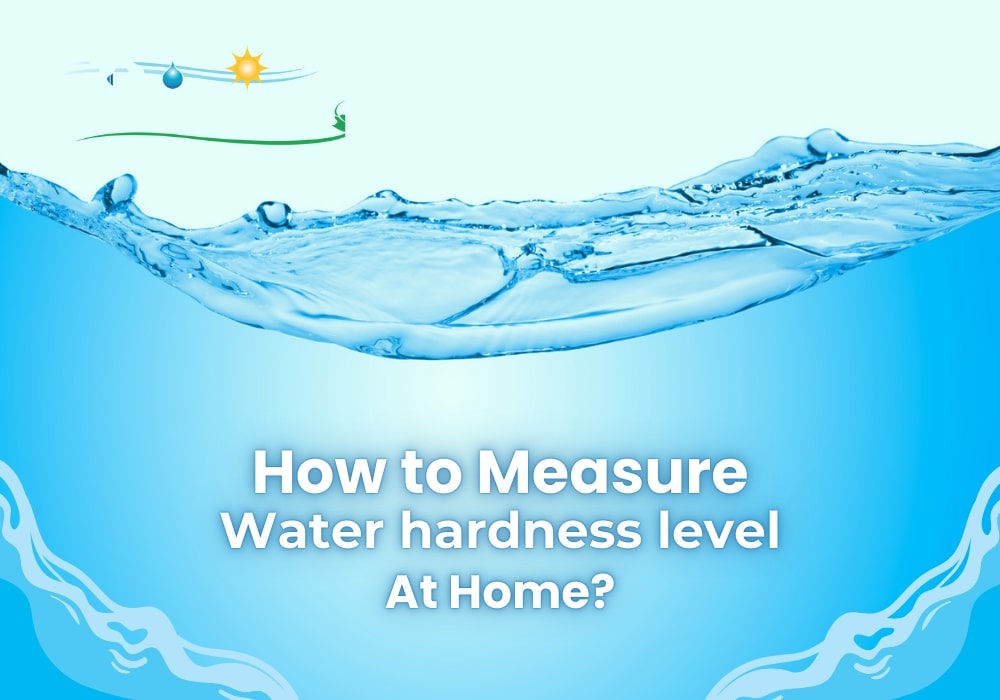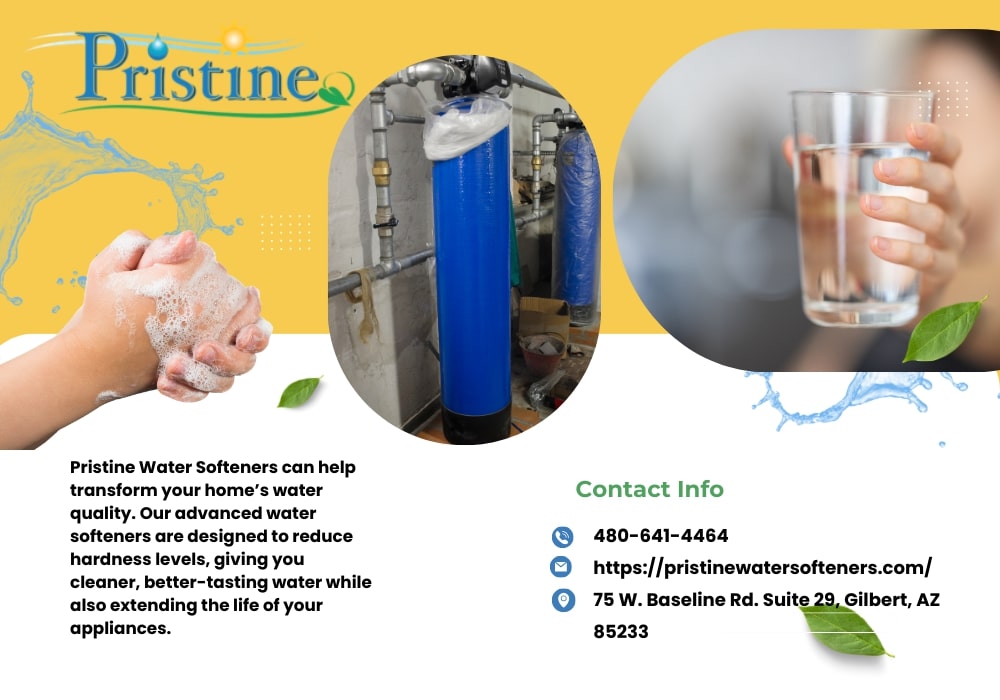Have you ever noticed soap scum in your sinks, dry skin after a shower, or limescale buildup on your faucets? These could be signs of hard water in your home. Understanding your water hardness levels is crucial, not just for your comfort but also for the longevity of your appliances. Whether you’re considering a water softener or already have one, knowing what a good hardness level for water softener settings is essential. This guide will guide you through everything you need to know, from testing your water’s hardness to setting the perfect level for your water softener.
What Is Water Hardness?
Understanding Water Hardness Levels
Water hardness refers to the concentration of calcium and magnesium ions in your water. These minerals are naturally found in groundwater and give water its “hard” quality: the more calcium and magnesium, the more complex the water.
How Does Water Hardness Affect Your Home?
Hard water can cause a variety of issues, including:
- Scale buildup in pipes and appliances
- Reduced efficiency of water heaters
- Dry skin and dull hair
- Dingy laundry and spots on dishes
Recognizing these signs early can prompt you to test your water hardness levels and take necessary action.
Why Measuring Water Hardness Matters
Protecting Your Home And Appliances
Knowing your water hardness levels can save you money in the long run. Appliances like dishwashers, washing machines, and water heaters can wear out faster when exposed to hard water. Regularly monitoring and managing these levels can extend the lifespan of your appliances.
Improving Personal Comfort
Soft water makes cleaning easier and feels better on your skin and hair. Setting the correct water hardness level can improve your daily comfort while enhancing your home’s cleanliness.
Methods For Measuring Water Hardness At Home
Using Water Hardness Test Kits
Water hardness test kits are an easy and affordable way to measure the hardness level at home. These kits usually have strips that change color based on the hardness level. Simply dip the strip into a glass of tap water, wait for a few seconds, and compare the color to the chart provided.
Digital Hardness Meters
For more precise measurements, you can use a digital hardness meter. This device calculates your water’s hardness in grains per gallon (GPG) or parts per million (PPM). While more expensive than test strips, they offer more accuracy and are reusable.
Professional Water Testing
If you prefer a more thorough analysis, consider hiring a professional to test your water. They can provide a detailed report on your water hardness levels and other water quality indicators, such as pH, iron, and chlorine levels.
Interpreting Your Water Hardness Results
Understanding Grains Per Gallon (GPG) And Parts Per Million (PPM)
Water hardness is typically measured in GPG or PPM:
- Soft Water: 0-3 GPG (0-50 PPM)
- Moderately Hard Water: 3-7 GPG (51-120 PPM)
- Hard Water: 7-10 GPG (121-180 PPM)
- Very Hard Water: Over 10 GPG (Over 180 PPM)
Once you know your water’s hardness level, you can adjust your softener accordingly to achieve the best results.
What Is a Good Hardness Level for Water Softener Settings?
So, what is a good hardness level for a water softener? It would help if you aimed to reduce your water hardness to around 0-3 GPG. This ensures that you experience the benefits of soft water while preventing issues like slippery or overly treated water.
Setting The Best Hardness Level For Your Water Softener
How Water Softeners Work
Water softeners operate through ion exchange, replacing calcium and magnesium ions with sodium or potassium ions. The result is gentler water on your skin, hair, and appliances.
Adjusting The Hardness Setting
Most water softeners have a dial or digital control panel where you can set the hardness level. After measuring your water hardness, you’ll want to enter this number into the system. For example, if your water tests at 8 GPG, you’ll set your water softener to handle 8 GPG.
Fine-Tuning For Optimal Performance
Even with the best setting, some adjustments may be needed. For example, you might reduce the setting slightly if your water feels too soft (slippery or slimy). On the other hand, if limescale buildup is still present, you may need to increase the hardness setting.
Common Challenges When Adjusting Water Hardness Levels
Over-Softening Issues
It’s possible to over-soften your water, creating an unpleasant, slippery feeling. While this isn’t harmful, it can be uncomfortable and may indicate that you need to adjust the settings slightly.
Under-Softening And Scale Buildup
If your water softener isn’t working, you might still see limescale deposits on fixtures and appliances. Double-check that your settings match your water’s tested hardness level and that your softener functions correctly.
Maintaining Your Water Softener
Regularly Testing Your Water
Water hardness can change over time due to shifts in your local water supply. Regularly testing your water hardness levels ensures that your softener is set correctly and performing as needed.
Cleaning And Replacing The Resin Bed
The resin bed in your softener can become fouled over time, mainly if your water contains high iron levels or other contaminants. Cleaning or replacing the resin bed when necessary keeps your system running smoothly.
Monitoring Salt Levels
It’s essential to monitor the salt levels in salt-based water softeners. Low salt levels can result in less effective softening, leading to the return of hard water symptoms.
The Benefits of Setting the Right Water Hardness Level
Enhanced Comfort
When you set your water softener to the ideal hardness level, you’ll notice softer skin, smoother hair, and a cleaner home. The correct setting ensures you get the full benefits of your water softener.
Longer Appliance Lifespan
Hard water can significantly shorten the lifespan of appliances like dishwashers and water heaters. By maintaining the proper water hardness levels, you can avoid costly repairs and replacements.
Energy Efficiency
Water heaters use more energy when dealing with hard water. Setting the correct hardness level can reduce energy consumption, saving you money on utility bills.
Understanding your water hardness levels and knowing what a good hardness level is for water softener settings can significantly impact your home’s comfort and efficiency. By testing your water, setting your softener correctly, and maintaining your system, you can enjoy the benefits of soft water while protecting your appliances. Whether you measure your water hardness with a simple test kit or prefer professional testing, the steps outlined in this guide will help you achieve the best results.
FAQs
How Often Should I Test My Water Hardness Levels?
It’s a good idea to test your water hardness levels at least twice a year or whenever you notice changes in water quality.
What If My Water Softener Doesn’t Work Even After Setting The Correct Hardness Level?
Check for common issues, such as low salt levels, a clogged resin bed, or a malfunctioning control valve. Regular maintenance can help prevent these problems.
Can I Measure Water Hardness Without Buying A Test Kit?
You can send a sample to a local water testing lab, but test kits and digital meters offer quicker and more convenient results.
Are Salt-Free Water Softeners Effective At Reducing Water Hardness?
Salt-free systems don’t soften water but condition it by reducing scale buildup. A salt-based system is more effective for genuinely soft water.
What’s The Ideal Setting For Homes With Soft And Hard Water Areas?
Aim for a setting around 3-5 GPG for mixed water sources to balance between avoiding over-softening and enjoying the benefits of reduced scale buildup.
Get Pure, Soft Water With Pristine Water Softeners
Are you tired of dealing with hard water problems like stubborn limescale, dry skin, and less efficient appliances? Pristine Water Softeners can help transform your home’s water quality. Our advanced water softeners are designed to reduce hardness levels, giving you cleaner, better-tasting water while also extending the life of your appliances. Imagine softer laundry, smoother skin, and a home free from the hassle of hard water buildup.
It’s time to take control of your water quality. Contact Pristine Water Softeners today to discover how our tailored solutions can bring pristine water into your home. Let’s make your water as refreshing and pure as possible—start your journey to better water today!



